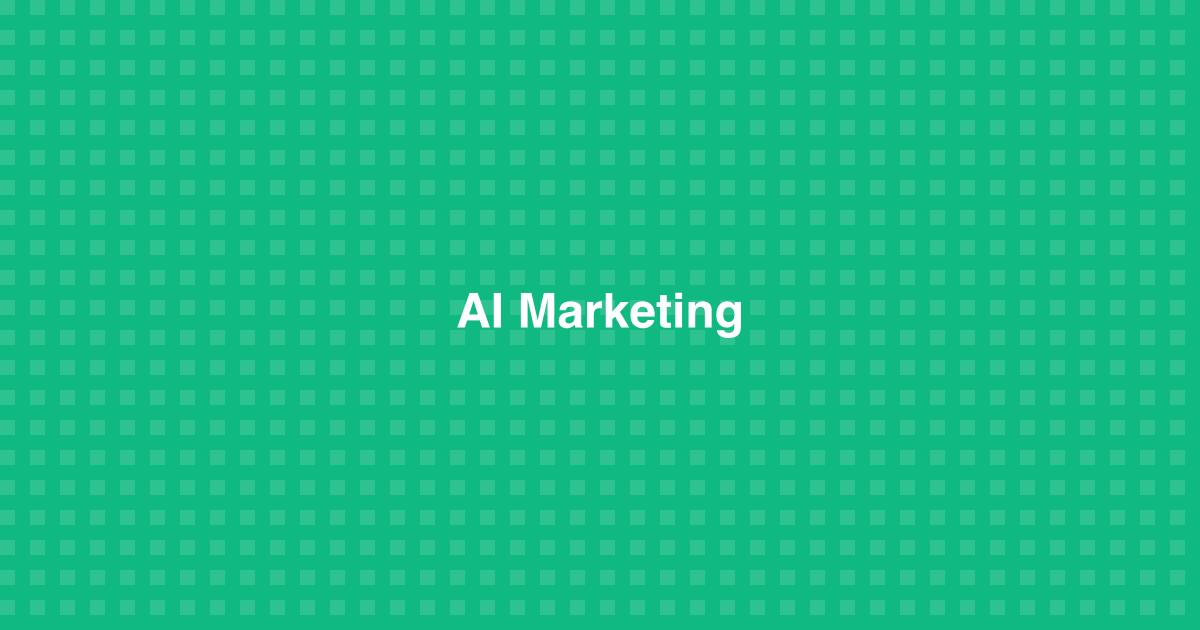AI-Driven Marketing: The New Frontier
Learn how artificial intelligence is revolutionizing marketing strategies, enabling personalized campaigns, and driving unprecedented ROI in the digital age.

AI-Driven Marketing: The New Frontier
Marketing has evolved significantly in the digital age, but the integration of artificial intelligence is catalyzing a revolution that's reshaping how businesses connect with their audiences.
The Evolution of Marketing
Traditional marketing approaches have relied on:
- Demographic targeting
- Historical data analysis
- Broad audience segments
- Manual campaign optimization
- Intuition-based decision making
But AI is changing all of that.
Key Areas Where AI is Transforming Marketing
1. Predictive Analytics
AI-powered predictive analytics enables marketers to:
- Forecast customer behavior
- Identify potential churn
- Optimize campaign timing
- Predict market trends
- Calculate customer lifetime value
2. Personalization at Scale
Modern AI marketing tools can:
- Create individual customer profiles
- Deliver personalized content
- Customize product recommendations
- Adjust messaging in real-time
- Tailor offers based on behavior
3. Content Creation and Optimization
AI assists in:
- Generating content ideas
- Writing compelling headlines
- Optimizing content for SEO
- Creating A/B test variations
- Analyzing content performance
4. Customer Journey Mapping
AI helps track and optimize:
- Touchpoint interactions
- Channel preferences
- Purchase patterns
- Engagement timing
- Conversion paths
Real-World Applications
Automated Campaign Management
- Dynamic budget allocation
- Real-time bid adjustments
- Performance monitoring
- Creative optimization
- Audience segmentation
Smart Chatbots and Virtual Assistants
- 24/7 customer engagement
- Personalized recommendations
- Instant query resolution
- Lead qualification
- Data collection
Predictive Lead Scoring
- Behavior analysis
- Intent prediction
- Priority assignment
- Sales opportunity identification
- Resource allocation
Implementation Strategy
-
Assessment
- Evaluate current marketing stack
- Identify AI opportunities
- Set clear objectives
- Define success metrics
-
Data Preparation
- Clean existing data
- Set up tracking
- Integrate data sources
- Establish governance
-
Tool Selection
- Research AI platforms
- Compare features
- Check compatibility
- Consider scalability
-
Implementation
- Start with pilot projects
- Train team members
- Monitor results
- Iterate based on feedback
Measuring Success
Key metrics to track:
- Campaign ROI
- Customer engagement
- Conversion rates
- Time efficiency
- Cost reduction
Challenges and Solutions
Data Privacy
- Implement robust security measures
- Follow regulatory guidelines
- Be transparent with customers
- Obtain necessary permissions
Integration
- Choose compatible tools
- Plan for seamless integration
- Train staff adequately
- Monitor system performance
Cost Management
- Start small
- Scale gradually
- Track ROI
- Optimize resource allocation
Future Trends
The future of AI in marketing will likely include:
- Enhanced natural language processing
- Advanced image and video analysis
- Improved emotional intelligence
- Better predictive capabilities
- More autonomous decision-making
Success Stories
Our clients have achieved remarkable results:
- 200% increase in engagement
- 150% higher conversion rates
- 40% reduction in marketing costs
- 300% improvement in ROI
- 80% better customer targeting
Conclusion
AI-driven marketing isn't just an option anymore—it's a necessity for businesses wanting to stay competitive in the digital age. The combination of data-driven insights, automation, and personalization creates a powerful framework for marketing success.
Ready to revolutionize your marketing strategy? Contact EagerMinds to learn how we can help you implement AI-driven marketing solutions that drive real results.